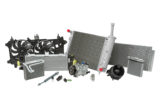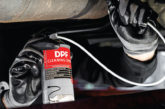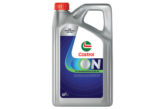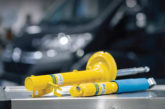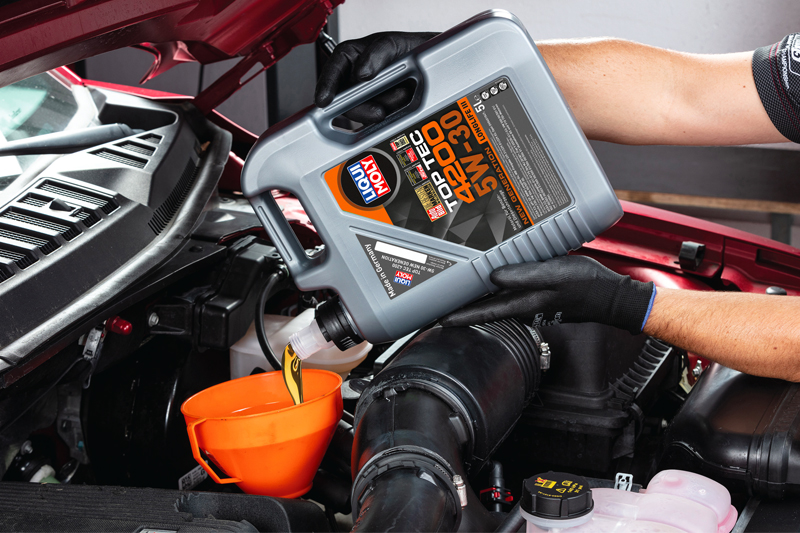
Why is it important to use the right oil? Can money be saved on engine oil and why does it need to be changed? Liqui Moly is here to provide the answers for PMM readers.
Proper oil lubrication is one of the most important things relating to engine protection and a protective lubricating film is necessary for minimum wear and to prevent engine damage. While wear protection is extremely important, using a high-quality oil can also help to further reduce internal friction while maximising performance and efficiency. An oil will need to protect well in all operating conditions and during extreme engine loads. It will also need to provide max flow during cold start while at the same time prevent lubrication film break down at high temperatures.
Necessary change
Over time oil loses its ability to provide the required protection, thus regular oil changes are necessary. Oil change intervals vary depending on factors such as engine design, engine wear, infrequent usage, ambient temperature, fuel quality and type, etc. With time and distance driven, motor oils are affected by such factors as fuel dilution, heat cycles, condensation, mechanical shear forces etc.

Added values
- Lubrication: lubrication of mechanical engine components is an oils most important function. An oils strong lubrication film prevents metal-to-metal contact while reducing friction between internal components.
- Cooling: a motor oil contributes to cooling by removing heat from areas such as cylinder walls and piston rings. This is necessary for overall protection of sensitive areas and to keep the engine from overheating.
- Cleaning: eliminating combustion byproducts, metal debris, sludge and deposits from engine internals is another motor oil function. A motor oil needs to help clean engine internals and also transport residue to the oil filter for removal.
- Sealing: motor oils support piston rings sealing for reduced compression loss, thereby increasing efficiency and preventing excess oil consumption. A thin oil film on rubber seals reduces wear, overheating and prevents premature leaks.
- Corrosion protection: a protective oil film on all internal surfaces prevent corrosion and/or erosion of metals. This protective film prevents oxygen, moisture and acidic by-products from affecting metals.
- Pressurise: ensuring accurate oil pressure for hydraulically operated systems is also one of the tasks of modern motor oils.
- Environmental protection: The use of effective exhaust after-treatment systems such as particle filters is only possible if modern motor oils with the correct oil specification are used.
Saving money?
Using a high-quality motor oil with the correct OE specifications can save on repairs and prevent premature break-down. Using a cheap oil may save a penny now, but is almost guaranteed to cost more later. Many cheaper oils in the market have their usage and place but they are not always meant to be used in modern cars.
When performing an oil change on a modern vehicle, it’s extremely important to use an oil that fulfils all OEM specifications for maximised protection. By doing so you will guarantee best fuel mileage and engine longevity while also being able to follow extended oil change schedules. A cheap oil may not have the necessary performance reserves to go for extended oil change periods and therefore needs to be changed quite often, which increases costs.
Liqui Moly motor oil is said to frequently exceed the manufacturer specifications and extends the engine’s service life. Many of the company’s motor oils are officially approved by manufacturers.
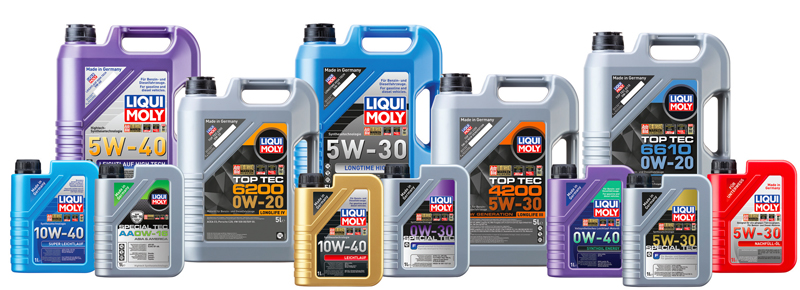
Additives in the oil
All motor and gear oils use individual additive packages as part of the formulation. Additive packages are matched to the oil specification needed. Some more advanced additive packages can be used to make an oil that meets more than one specification. For an oil to get an official manufacturer approval a high-quality additive package has to be used.
Motor oil vs gear oil?
Fundamentally, gear oils carry out the same task as motor oils. But the main difference with gear oils is that they are designed specifically to protect, lubricate and cool gearing systems that are mainly found in transmissions, differentials and transfer boxes. These are usually exposed to much higher pressure and shearing forces than an engine oil. Another difference is gear oil is not diluted by fuel input. In principle, gear oils therefore require other ingredients, other additive packages, in order to be able to fulfil the tasks required of them.

